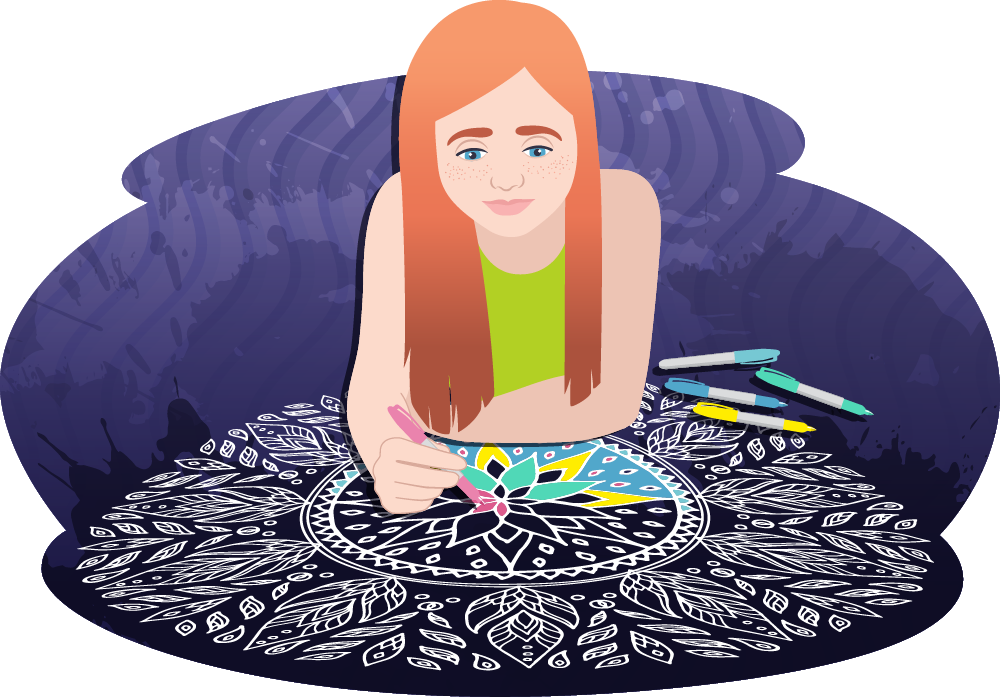Self-care
Looking after yourself is an important coping strategy. Let’s look at ...
READ MEIf you are feeling stressed, anxious or just struggling to deal, there are lots of coping strategies you can try.

It’s that inner strength or resilience that allows you to put one foot in front of the other when you feel like giving up.
Different coping strategies work differently for different people, which is what can make coping so tricky.
"There are three main things that have kept us strong through tough times, and they are friendship, community and music."
Here are some coping strategies you can try, and helpful info on how and why they work.
When we are stressed, our breathing patterns become fast and chest-focused.
When we are calm, our breathing patterns are slow, even and stomach-focused.
Taking slow, calm breaths is one way for your body to communicate to your brain that you are safe and it’s ok to calm down.
Focus on 3 things you can hear, 3 things you can smell, and 3 things your body can physically feel
Touch is a great way to be present – you might stomp your feet, pat your cat or even have a massage
Get absorbed in the moment – playing sport, playing a video game or just having fun with friends is a great way to have a mental break from worries
Focus on really listening to an awesome song
Eat something yummy really slowly, savouring the taste
Splash cool water on your face – this can trigger the ‘mammalian dive reflex’ which is an automatic response that slows your heart rate and brain waves (designed to help us survive when swimming underwater)
Watch to learn a simple mindfulness strategy!
For example, we can stress over a fight with had with a friend yesterday, or worry about a test we have next week.
But our body is always in the present moment.
Mindfulness is about grounding and reconnecting with your body so your mind can also be in the present moment.
This can be effective at breaking worrying mental thought patterns.
One of the ways things like creative writing, dancing, music and art can help is they actually alter your brain waves and create different mental and emotional states, especially if you get ‘absorbed’ in the activity.
The second way these activities help is by acting as distractions, which are sometimes a helpful way to break a worry cycle or help shift your mood.
The third way they help is by allowing you time to process and gain insights into your thoughts, feelings or behaviours. Having insight can help you break patterns and form new habits. These insights play an important role in creating ‘meaning’.
Being able to create meaning from a negative experience is a great way to be more resilient and is an important part of post traumatic growth – not just surviving a trauma, but actually thriving!
Imagining positive future events can increase happiness and decrease depression
Using your imagination to imagine a fear (in a safe way) can reduce your anxiety around that fear
Mental rehearsal (visualising yourself doing a particular task) can actually help you perform the task better
Daydreaming about your friends, family or partner can increase your feelings of happiness and connection with them
“Athletes use mental rehearsal to help them get better at a sport or skill!”
– Amanda, Kids Helpline Counsellor
Worrying is one way your brain uses its imagination. But, daydreaming is the flipside of worrying.
In fact, when you imagine something, the same parts of your brain ‘light up’ as if you actually experienced it.
So, if you imagined hearing your favourite song, the same part of your brain lights up as if you actually heard your favourite song. Pretty neat, huh?
“If you are feeling anxious, asking for help might make you feel even more worried. If you are feeling depressed, you might feel like things are hopeless and getting help won’t make a difference.
Your feelings are valid, but they aren’t necessarily true. Asking for help can make a big difference, even when it doesn’t feel that way!”
– Amanda, Kids Helpline Counsellor
Counselling assists and supports people by helping them:
Self-care
Looking after yourself is an important coping strategy. Let’s look at ...
READ MEHow to manage anxiety
Anxiety can feel overwhelming, but there are some simple steps you can ...
READ MEMindfulness
Mindfulness connects us through the present moment by connecting us with our ...
READ MEMeditation
Meditation is a coping strategy with an impressive amount of benefits - ...
READ METalking helps! We’re here for you.
No problem is too big or too small.
We're here 24 hours a day, 7 days a week